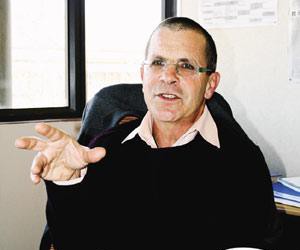That way they would be assured of some training, a lot of hard work, and a chance to earn a good income and respect in their communities. This comment may very well be the thinking of many jaded young people who have a little or no chance of getting into a university.
18 years and the prospect of getting into a higher learning institution for black students are still very low because of the quality of the basic education systems implemented in schools located in previously disadvantaged areas. The quality of results from these schools means that students from these areas are not easily accepted into institutions of higher learning, which affects the rate at which the country can produce the scarce skills required to achieve our very ambitious economic development and transformation plans.
There is a racial skew in education, “where a white pupil has a 60 percent chance of going to university while a black pupil has a 12 to15 percent chance. That’s not sustainable and that’s not fair in a democracy where we’re supposed to be equal.” says independent education specialist Graeme Bloch.
Poverty eradication, employment creation and economic growth strategies all dependent on the availability of skills. South Africans need to realise that if we are to transform the prevalent economic disparity, proper basic education systems combined with non-radicalised access to education and skills development programmes is crucial in addressing economic inequalities.
Graeme Bloch is who is known for his tongue in cheek comments is scheduled to speak at the 4th Annual BHP Billiton Skills Development Summit, taking place on the 25th and 26th July 2012.
The summit provides a platform where Government and Corporate South Africa can examine and through the Achiever Awards applaud the impact of the various skills development strategies and programmes from the private and the public sector in addressing the legacy of educational, economic segregation and, indirectly, major skills shortages.
The summit endeavours to consider the extent to which new policies, institutions and delivery mechanisms are succeeding in building a new, inclusive high-quality skills development system, and highlight some of the successes and key weaknesses that still remain. Our key objective is to find lasting and effective solutions to the skills development challenges facing South Africa today but mostly to help business identify opportunities that lie ahead by unpacking the skills corporate SA needs to be focusing on in order to tap into the new economic and infrastructure development plans of the country.
For additional information on the BHP Billiton Skills Development Summit and Achiever Awards, please email info@skillssummit.co.za or contact Kekeletso Khena on 021 681 7000.






